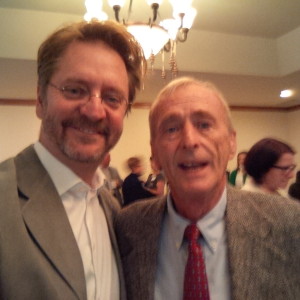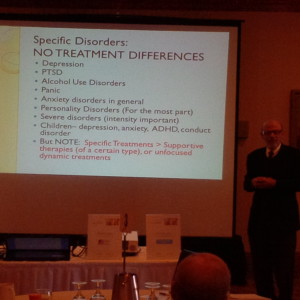Growing up, my family had a game we frequently played around the dining room table. “If you could invite anyone to dinner,” it always started,”who would it be?” Invariably, my father chose historical figures: Abraham Lincoln, Mark Twain, Leonardo Da Vinci. My mom was more inclined toward the living: Jackie O., J.D. Salinger, Lucille Ball. My brothers, Marc and Doug, usually went for sports figures. I recall Wilt Chamberlain and Willie Mays being popular choices–although there were many others whose names I’ve now forgotten.
Me? Always the same answer: Paul McCartney.
Of course, the “name game” didn’t end there. Whatever your choice, you also had to state why. Here, my answer didn’t vary either. “He’s one of the Beatles!” I’d say, frustrated whenever my family acted as though my statement needed further clarification.
To this date, I’ve never had a chance to met much less have dinner with Paul McCartney. Seen him in concert a number of times but always from a distance. Last week, however, I did have the opportunity to meet and spend time with a number of my heroes from the field of psychotherapy–and go to dinner together, not once, but twice!
We were together at the first ever Calgary Counseling Center Outcomes conference. Thanks to Center’s director, Dr. Robbie Wagner, a small group of practitioners, policy makers, and agency managers were invited to spend two, intimate days learning from the field’s leading thinkers and researchers. The Beatles of outcome research: Michael J. Lambert, Bruce E. Wampold, Michael Barkham, Wolfgang Lutz, and Gary Burlingame. I presented the latest results on our studies of top performing therapists.
It was every bit a rock concert–exciting, controversial, and cutting edge. Below, I summarize the “greatest hits.” I’ve also included the slides from each presentation for those who like to read the details contained in the “liner notes!”
Let me know what you think…here goes:
- The burden born by people with mental health problems is second only to cancer (Depression alone results in a 70% loss of productivity)
Bottom line: People need the skills mental health professional have to offer
- Treatment is effective. However, therapists believe they help far more people than they do (85% versus 20%);
- Approximately 10% of adults deteriorate in care;
- Between 14 and 25% of children are worse off following treatment;
- Serious deterioration recognized in only one-third of cases;
Bottom Line: Mental health professionals overestimate their effectiveness and miss deterioration
- Multiple, sophisticated, real world studies find no difference in outcome between people treated with different therapeutic approaches;
- Factors related to the therapeutic relationship (i.e., empathy, collaboration, affirmation, genuineness) have a far greater impact on outcome (7:1) than treatment approach, adherence to treatment protocol, or rated competence.
Bottom Line: The pathway to improved effectiveness is not adopting new treatment approaches
- Rapid and dramatic change (first 5 visits) occurs in as many as 40% of people and is maintained at two year follow up;
- 90% chance of failure if there is no change between the 2nd and 8th visit;
- As many as 25% of people remain in treatment while experiencing no measurable benefit;
Bottom Line: A large number of people need very little treatment to achieve lasting benefit
- Separating intake from treatment results in higher drop out, lower and longer treatment response, and higher costs;
Bottom Line: Any barrier to establishing a relationship with a specific provider has a negative impact on outcome
- The majority of individual practitioners are effective;
- Around 16% of practitioners achieve outcomes significantly below average;
- Less effective practitioners rate empathic understanding more highly as a professional/personal attribute than more effective practitioners;
- The clients of the least effective clinicians were assigned to average practitioners, an additional 15% of clients would achieve clinical recovery;
- Around 16% of practitioners consistently achieve outcomes significantly above average;
- More effective practitioners rate resilience and mindfulness more highly as a professional/personal attribute;
- Professional self-doubt and an “error-centric attitude” are associated with better outcomes.
Bottom Line: Choose your therapist carefully as they determine the outcome of care
- When therapists receive feedback that clients are deteriorating, they: discuss it with clients about 60% of the time; make efforts to assist with other resources about 27% of the time; adjust therapeutic interventions 30% of the time; vary intensity or dose of services 9% of the time; consult with others (supervision, education, etc.) 7% of the time;
- Therapist attitude toward soliciting and using feedback vary and influence results;
- Therapists who value feedback achieve better outcomes;
- Professional self-doubt and an “error-centric attitude” are associated with better outcomes;
Bottom Line: Regular, formal feedback from clients to therapists improves outcomes (as long as the therapist listens and acts on the feedback)
- When asked, 92% of clients say they like the use of outcome measures in care.
Bottom Line: An overwhelming majority of clients endorse progress monitoring or providing feedback
How to double client outcomes in 18 seconds (Lambert, 2014)
Practice-based Evidence (Michael Barkham, 2014)
How to Improve Quality of Services by Integrating Common Factors into Treatment Protocols
When & How do Patients Change? Wolfgang Lutz Outcome Presentation
Reach: Pushing Your Clinical Effectiveness to the Next Level









Dinner company: the Marx brothers!
God Jul Scott !
Who would I want to have dinner with? Why, the amazing Scott Miller, of course! Because he is amazing. 🙂 Other than that…. there are so many…. how about Jesus Christ. I really want to know what He thinks about the way Christianity is implemented here on earth. God Jul Scott!
Scott,
You have some great information within this email. My only criticism is that I fear it is too much at one time. Frankly, I only had time to skim it.
Any one of your slide presentations or “Bottom Line” statements would have provided enough to discuss. But, who am I to criticize.
Thank you.
-bernie
Paul McCartney works for me as I would love to discuss the early days and how he got into music. Would also like to talk to ask a WWll vet about the war as we are loosing that generation, finally would love to talk to Mickey Mantle or Whitey Ford as they were my hero’s while growing up.
Thank you for making those slides available, Scott! Great stuff!